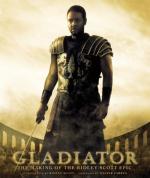|
This section contains 4,141 words (approx. 14 pages at 300 words per page) |

|
Like his life in the dismal barracks, a gladiator's appearance in the arena was a formal, regimented affair, scripted by custom, ceremony, and accepted rules of conduct. The gladiator entered the arena at a prescribed place and time; automatically took part in the often elaborate preliminary rituals; began fighting when the appropriate signal was given; and, if he survived, exited the arena where and when he was told. No deviations from these procedures or any sort of protests or appeals for leniency were possible. Such insolence would have led to almost immediate execution.
Moreover, while in the amphitheater, the gladiator was in a sense the plaything of the emperor (or other highest ranking leader present) and the spectators. And entertaining and appeasing them was as essential to the fighter's well-being as defeating his opponent, for if his performance was viewed as substandard...
|
This section contains 4,141 words (approx. 14 pages at 300 words per page) |

|




